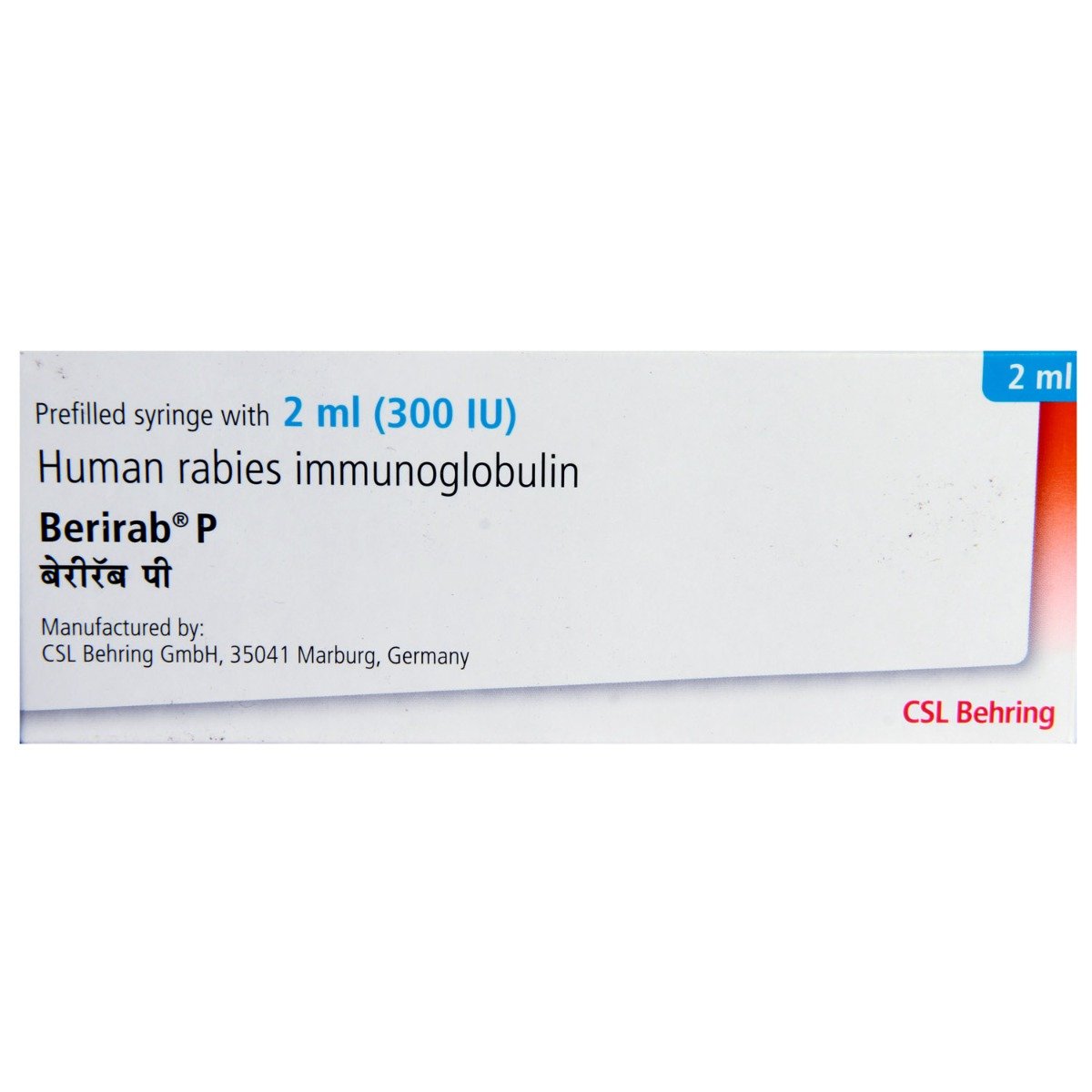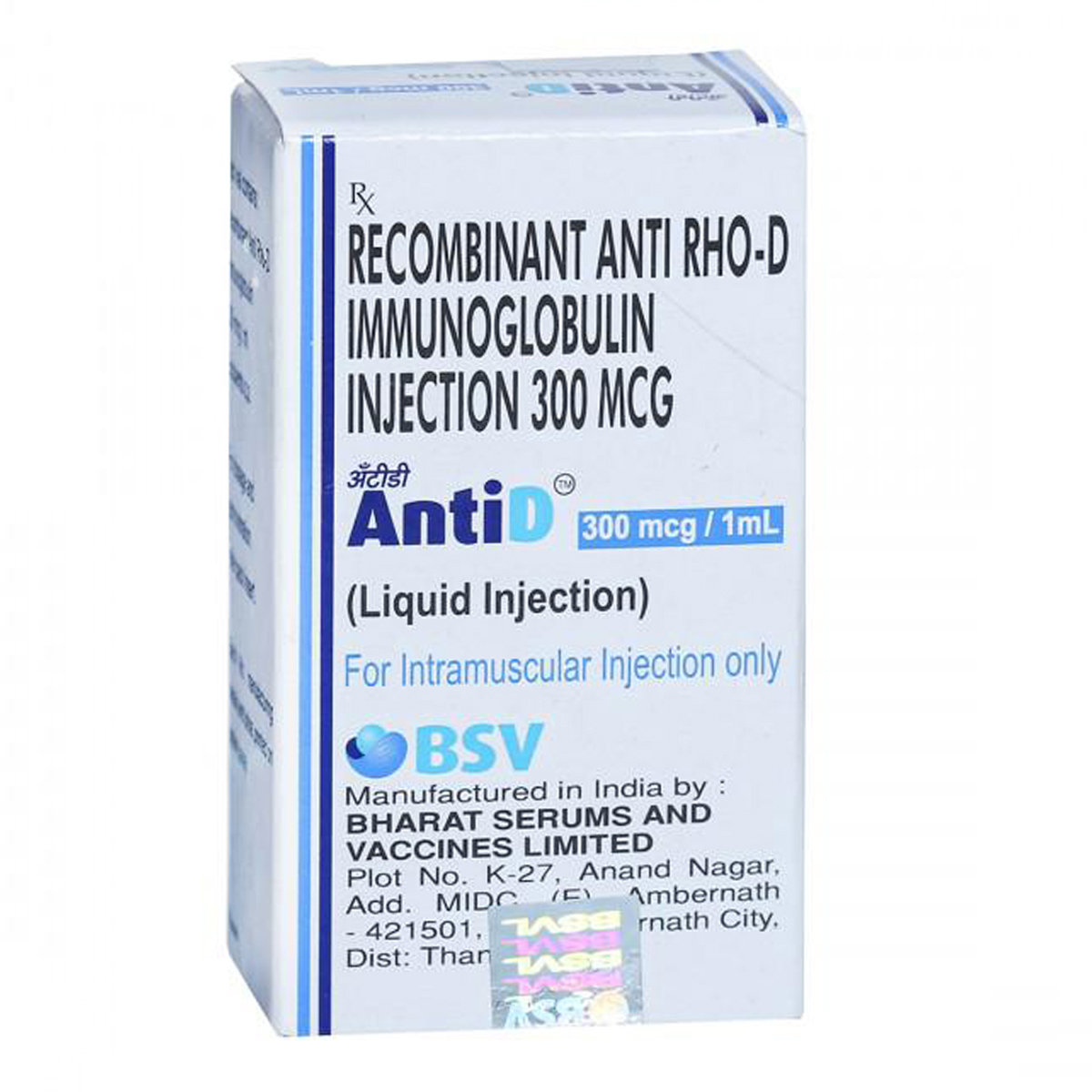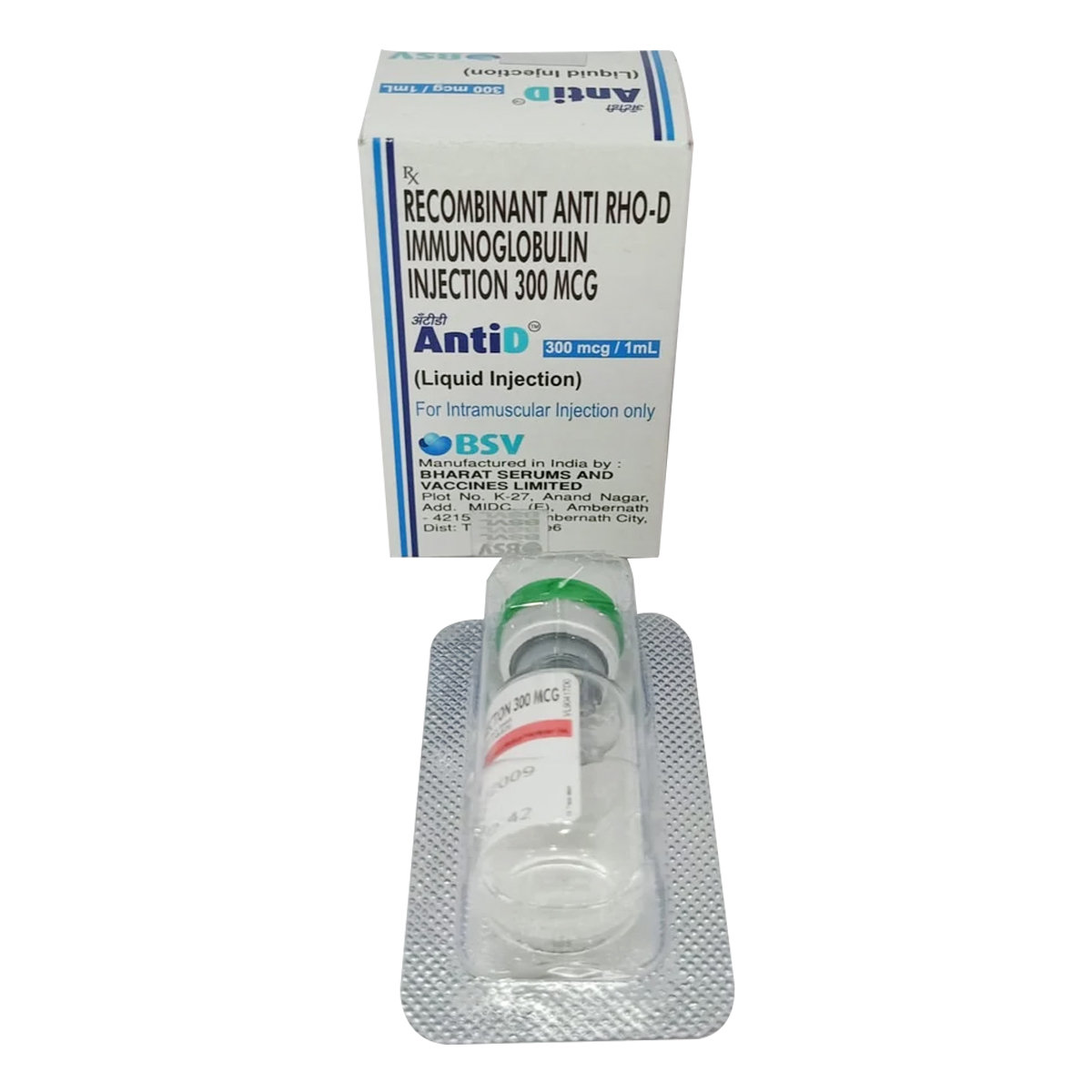Anti Rabies Immunoglobulin
About Anti Rabies Immunoglobulin
Anti Rabies Immunoglobulin belongs to a group of medications called ‘immunising agents’ used to prevent rabies. Rabies is a viral disease that spreads from dogs to humans through bites or scratches, usually via saliva.
Anti Rabies Immunoglobulin contains ‘anti-rabies immunoglobulin’, which acts against the rabies virus. Immunoglobulins or antibodies are essential to the immune response and help by protecting against viruses to prevent infection. Anti Rabies Immunoglobulin works by neutralising the rabies virus by provoking an individual's immune system. It helps to prevent rabies disease post-exposure. It is usually not required in people vaccinated against rabies disease.
Anti Rabies Immunoglobulin is given as an injection. It is administered by a healthcare professional. The common side effects of Anti Rabies Immunoglobulin are temporary discomfort or hardened area at the injection site, chest pain, shortness of breath, dizziness, swelling of the face, mouth ulcers, chills, coating of the tongue and joint pains. Inform your doctor if any of these side effects persist or worsen.
Before taking Anti Rabies Immunoglobulin, inform your doctor if you are suffering from any blood clotting disorder, had any vaccinations recently or have already had this product. Inform your doctor if you are pregnant or breastfeeding. Anti Rabies Immunoglobulin can be given to children and elderly people if clinically needed. Do not consume alcohol as it may interfere with the action of Anti Rabies Immunoglobulin. Anti Rabies Immunoglobulin may not affect your ability to drive.
Uses of Anti Rabies Immunoglobulin
Medicinal Benefits
Anti Rabies Immunoglobulin contains antibodies against the rabies virus. Antibodies are proteins that provide immunity by identifying and neutralizing foreign objects in the body. Anti Rabies Immunoglobulin is given to prevent rabies disease. It should be given along with the first dose of the rabies vaccine or within 7 days of the vaccine administration. The injection is usually given at the wound site to neutralize the virus.
Directions for Use
Storage
Side Effects of Anti Rabies Immunoglobulin
- Temporary discomfort or hardened area at the site of injection
- Chest pain
- Shortness of breath
- Dizziness
- Swelling of the face
- Mouth ulcers
- Chills
- Coating of the tongue
- Joint pains
- Slight fever
Drug Warnings
Before taking Anti Rabies Immunoglobulin, inform your doctor if you already had Anti Rabies Immunoglobulin recently, as the previous injection may interfere with the rabies vaccine. Also, inform your doctor if you had any allergies to any vaccines previously, had vaccination recently or planning to get vaccinated, especially live vaccines such as MMR (for measles, mumps, and rubella) and varicella (for chickenpox) vaccines. Do not take any live vaccines within 3 months after taking Anti Rabies Immunoglobulin as these vaccines can be less effective. And inform your doctor if you have recently taken this medicine, as it may alter your blood test results.
Drug Interactions
Drug-Drug Interactions: Anti Rabies Immunoglobulin may interact with the vaccine taken against measles, mumps, and rubella (MMR vaccine) and the vaccine taken against chickenpox (varicella vaccine) and making them less effective. So, these vaccines should be delayed for at least 3 months after taking Anti Rabies Immunoglobulin.
Drug-Food Interactions: No interactions found.
Drug-Disease Interactions: Anti Rabies Immunoglobulin should be used with caution in patients with blood disorders.
Drug-Drug Interactions Checker List:
Safety Advice

Alcohol
cautionAlcohol consumption may interfere with the action of Anti Rabies Immunoglobulin.

Pregnancy
safe if prescribedAnti Rabies Immunoglobulin is safe to be used in pregnancy.

Breast Feeding
safe if prescribedAnti Rabies Immunoglobulin is safe to be used in breastfeeding.

Driving
safe if prescribedAnti Rabies Immunoglobulin may not affect your ability to drive.

Liver
safe if prescribedAnti Rabies Immunoglobulin can be safely used in patients with liver diseases if prescribed.

Kidney
safe if prescribedAnti Rabies Immunoglobulin can be safely used in patients with kidney diseases if prescribed.

Children
cautionAnti Rabies Immunoglobulin can be given to children below 12 years if clinically needed.
Habit Forming
Diet & Lifestyle Advise
- Vaccinate your pets up-to-date.
- If you have been bitten or scratched by an animal, wash with soap and water immediately and consult a doctor.
Special Advise
- Seek medical attention if you have been in contact with any wildlife animal, especially if you have been bitten or scratched to rule out rabies or any other zoonotic diseases (diseases transmitted from animals to humans).
- Anti Rabies Immunoglobulin may give misleading results if you have a blood test. Inform your doctor if this is the case and tell your doctor as the previous injection may interfere with the vaccine.
Patients Concern
Disease/Condition Glossary
Rabies: Rabies is a viral disease caused by the rabies virus. Vaccination can help prevent it. It is transmitted from rabies-infected animals to humans by bites or scratches, most commonly through saliva. This illness affects the brain and can be fatal in some cases. The earliest symptoms include flu-like, general weakness, fever, or headache. If left untreated, the condition can lead to anxiety, confusion, brain dysfunction, hallucinations, and abnormal behaviour.
FAQs
Anti Rabies Immunoglobulin contains antibodies that act against the rabies virus. It identifies and neutralizes the virus and prevents rabies disease in people exposed to the rabies virus.
Anti Rabies Immunoglobulin contains immunoglobulins or antibodies that act against the rabies virus. It is given immediately after exposure to the rabies virus (bites, scratches, contamination with saliva on broken skin, and exposure to bats) along with the rabies vaccine or within 7 days after taking the vaccine. However, Anti Rabies Immunoglobulin is not required if you have previously taken rabies vaccination.
A repeat dose of Anti Rabies Immunoglobulin may be given if required. However, your doctor determines if you need a repeat dose.
The common side effects of Anti Rabies Immunoglobulin are temporary discomfort or hardened area at the injection site, chest pain, shortness of breath, dizziness, swelling of the face, mouth ulcers, chills, coating of the tongue and joint pains. Inform your doctor if any of these side effects persist or worsen.
Anti Rabies Immunoglobulin provides a rapid immune response towards the rabies virus as soon as it is injected, and its action may last for approximately 21 days.






